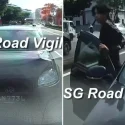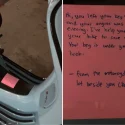SINGAPORE – Singapore and Malaysia are talking about allowing Malaysian taxis to drop off passengers anywhere in Singapore rather than at a designated spot, and for Singapore taxis to do likewise in Johor Bahru, said Senior Minister of State for Transport Sun Xueling.
Relaxing this restriction under the Cross-Border Taxi Scheme would provide greater convenience to commuters from both countries, Ms Sun told Parliament on Oct 15.
The scheme allows a licensed fleet of up to 200 taxis from each country to ferry passengers to and fro.
Currently, these taxis are allowed to pick up and drop off passengers at one designated point in each country – Larkin Sentral in Johor Bahru for Singapore taxis, and Ban San Street Terminal in Rochor for Malaysian taxis.
Singapore’s Ministry of Transport (MOT) and its Malaysian counterpart have also been discussing a higher quota of taxis for each country, the introduction of larger taxis and the use of ride-hailing apps to make taxi bookings.
Ms Sun said these discussions are a result of “a lot of unmet demand” from commuters, especially those with children and the elderly, who want to travel more frequently across the border for shopping trips, holidays, or to visit family.
As part of the review of the Cross-Border Taxi Scheme, Ms Sun said MOT will consult platform worker associations, including the National Taxi Association (NTA), to make sure that fares for cross-border trips are viable.
Ms Sun was responding to a question by Mr Ang Wei Neng (West Coast-Jurong West GRC), who is also the chief executive of taxi operator
Strides Premier, which offers cross-border taxi rides
.






